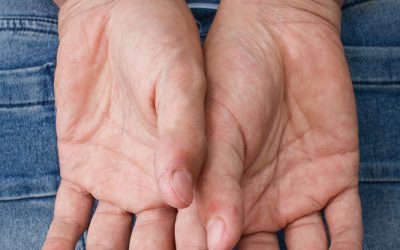A medical evaluation can determine if your symptoms need to be monitored. You can transition from alcohol detox to addiction treatment by alcohol detox enrolling in inpatient rehab, outpatient programs, therapy, or support groups to ensure long-term recovery. Occurring between 24 to 72 hours, this is the most intense phase, where symptoms peak.
- They may be more noticeable when you wake up with less alcohol in your blood.
- I suggest starting the journey with an expectation to improve physical health, since that part is a given.
- These medications are prescribed for one to two weeks to ease neurological overactivity during detox.
- Make sure that others with you during this time know to call 911 right away.
Alcohol Withdrawal Symptoms: Timeline and Detox

Millions of people join support groups to help stop drinking and stay stopped. Studies show support groups play an instrumental role in helping people develop healthy social networks that result in continued sobriety. However, medical complications can occur during the acute phase of withdrawal.
Stage 1: Early Symptoms (6–12 Hours After the Last Drink)
Outpatient, where you get some treatment during the day but live at home. This might be as simple as visiting your healthcare professional regularly to get meds. Inpatient, where you live at a hospital, detox clinic, or rehab center during the process. Your symptoms may last a week or more, typically hitting their worst within hours.

Make A Decision That Will Change Your Life
- It’s very important to seek help if you struggle with alcohol use disorder.
- Our writers and reviewers are experienced professionals in medicine, addiction treatment, and healthcare.
You’re more likely to stick with a detox program when you have lots of help. Visit the following websites to learn about The Recovery Village’s network of rehabilitation facilities. Each center is ready to help people learn how to cope with their addiction and uncover the root causes for their substance use disorder. Identifying these risk factors is crucial for determining the appropriate level of care and ensuring safe detoxification.
Welcome to Drug Rehab Featured by Addiction Resource Team
Studies show that gabapentin can also help improve your sleep and mood, which may make you less likely to relapse. You can take these medications by mouth, or your doctor may give you a longer-acting version of one of these drugs by IV in the hospital. As your body gets used to no alcohol, different treatments can make you more comfortable and keep your symptoms from getting worse. Symptoms are often at their worst between 24 and 72 hours after you stop drinking.
Outlook for Alcohol Withdrawal
Addiction Resource is not a healthcare provider, nor does it claim to offer sound medical advice to anyone. Addiction Resource does not favor or support any specific recovery center, nor do we claim to ensure the quality, validity, or effectiveness of any particular treatment center. No one should assume the information provided on Addiction Resource as authoritative and should always defer to the advice and care provided by a medical doctor.
Over time, however, the body builds a tolerance to alcohol, and a person may have to drink more and more http://www.kartalmarangoz.net/what-are-the-7-steps-to-overcome-alcoholism/ to get the same feeling. Meanwhile, the brain is producing more and more neurotransmitters, making a person further imbalanced. BetterHelp offers affordable mental health care via phone, video, or live-chat. Outpatient detox may not significantly disrupt a person’s everyday routines. After receiving treatment, people can go home and may not need to leave their jobs or school.
What are the symptoms of alcohol withdrawal?
Alcohol withdrawal symptoms range from mild but annoying to severe and life-threatening. When someone drinks alcohol for a prolonged period of time and then stops, the body reacts to its absence. This is alcohol withdrawal, and it causes uncomfortable physical and emotional symptoms. Alcohol Use Disorder (AUD) is a condition that prevents people from stopping themselves from their drinking habits. This can lead to substance dependence that what is Oxford House may require a person to quit drinking.
Alcohol Support Groups: Definition, Purpose, Programs, Near Me

They are used when benzodiazepines are not suitable, especially for patients with a history of substance abuse or dependence. These medications are prescribed for one to two weeks to ease neurological overactivity during detox. Alcohol detox is medically treated with supervised care, medications, IV fluids, and continuous monitoring of vital signs to manage withdrawal symptoms and prevent complications. Alcohol detox is the first step in recovery, helping your body and mind stabilise as they adjust to life without alcohol. It eases withdrawal symptoms and requires medical supervision to ensure safety, especially when symptoms become severe.
Days Three To Seven
In rehab, a medical professional will administer the medication and monitor its effects. If the medication begins to cause unwanted side effects or interferes with the detox process, another remedy can be used. The alcohol detox phase can involve withdrawal symptoms ranging from mild intensity to life-threatening. Oftentimes, the longevity and severity of your alcohol use disorder (AUD) will play a role in the withdrawal symptoms you experience. For example, individuals who have struggled with years of heavy drinking are more likely to develop serious withdrawal symptoms like seizures or delirium tremens.



